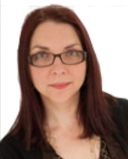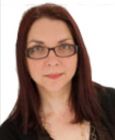Self-Help
Read Any Good Psychology Books Lately?
The Data Doctor gets asked about reading recommendations.
Posted August 25, 2015
Hi Dr. Hamby!
Hope this finds you well! So, when students leave university, they heave a sigh of relief that they don't have to study anymore. Sure, I did the same; but now I find myself missing it! I left all my psychology books and notes in Iowa too, and find myself wanting to keep up and just refresh my brain. If you have any interesting readings you use in class, I'd love it if you could suggest some; trust me, I'll put them to good use! :)
Professor Hamby, I was looking at the video we made for our gender class. I'd forgotten how much fun that was, and how much we learnt!
Hope you have a great week!
Regards,
Roshni
Dear Roshni,
It is nice to hear from you! I am not surprised to hear that you are eager to find some interesting reading, you have such an active mind and keen intelligence. Next I expect to receive a request for a letter of recommendation to graduate school!
In no particular order, here are a few of the psychology and related books that have really made an impression on me. Folks looking for self-help books, skip towards the end.
1) I'm currently reading Redirect by Tim Wilson. This is a very accessible book that does a great job covering both what works and what doesn't in prevention and intervention. His main insight is that a lot of the successful programs encourage "re-storying"—changing people's narratives to focus on growth and resilience. Many well-intentioned programs that look good on paper don't work, and often one problem seems to be shifting stories in a negative direction. For example, programs that lead to high-risk youth hanging out with other high-risk youth can just make kids worse, not better. Labeling high-risk children or families can also make them live up to that label instead of being a chance to get resources.
2) Books about chimps! I love Jane Goodall. In the Shadow of Man is a classic and full of amazing (chimpanzee) characters. I once saw her in person and even though she is petite she filled an entire auditorium with her version of chimpanzee calls without a microphone. That was pretty amazing, too.
Frans de Waal has written a couple of books on power and reconciliation among chimpanzees that are closer to the topic of violence. Chimpanzee Politics and Peacemaking Among Primates are enjoyable and provide some insight, I think, into what is needed to help reduce human aggression too.
3) I don't think I was using While We Were Sleeping: Success Stories in Injury and Violence Prevention by David Hemenway when you took my class. I like this one because, like Wilson's Redirect, it has positive stories about what works and why those things work. Both of these books are good too because they are not just someone promoting their own program, they are pulling together stories from a wide range of programs.
4) If you want to learn about good ways to work with victims of violence, I recommend Jill Davies' Advocacy Beyond Leaving (free report at this link) or Lisa Goodman's and Deborah Epstein's Listening to Battered Women. Anything by Ellen Pence, such as this.
Also, Laura Brown's slim book on Feminist Therapy is a great read, not only about therapy for women or "women's issues" (whatever those are), but for anyone who wants a more egalitarian approach to the therapeutic relationship.
You read bell hooks' Feminist Theory: From Margin to Center for class but I'd recommend anything else by her too.
5) Thinking about my own professors, my favorite book by one of my own former professors is Making It Crazy by Sue Estroff, who immersed herself in a community of people with severe mental illnesses and even took anti-psychotic medication so she would know what they are going through.
6) I get asked about good self-help books a lot. There are not as many good ones out there as I'd like to see. A lot of what is out there is pretty old, but You Can Be Free by Ginny McCarthy still makes good points and most of what is in Courage to Heal holds up pretty well too. I see they have an updated 20th anniversary addition.
For Christian women seeking a self-help book (I live in the Bible belt so I get a lot of questions from women looking for religiously-informed guidance), I recommend Keeping the Faith: Guidance for Christian Women Facing Abuse by Marie Fortune, a minister.
It's less self-help and probably more oriented towards professionals, but Just Love: A Framework for Christian Sexual Ethics by Margaret Farley is also good for people who are interested in thinking about violence and non-violence from a Christian perspective.
Jewish Women International has terrific material on promoting safe relationships and non-violence from the Jewish perspective.
I do not know of any good self-help materials on domestic violence or other violence topics from a Muslim perspective but would be glad to get some recommendations. My book, Battered Women's Protective Strategies: Stronger Than You Know, covers some of the professional literature from these three religious perspectives.
7) I know you read these for class, but for other readers I would also mention Desmond Tutu's No Future Without Forgiveness, a moving book on the Truth and Reconciliation Commission in South Africa after apartheid.
8) Next up on my reading list is Daniel Kahnemann's Thinking Fast and Slow.
I'd be glad to have people make other recommendations in the comments! What can I add to my reading list?
--The Data Doctor
Notes: Have a question for the Data Doctor? Send an email to sherry.hamby@lifepathsresearch.org or sherry.hamby@gmail.com or put it in the comments. The Data Doctor appears on Tuesdays.




